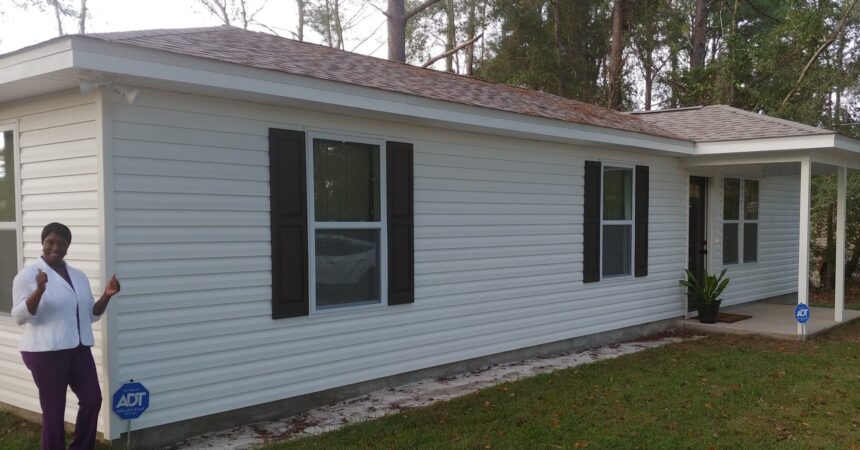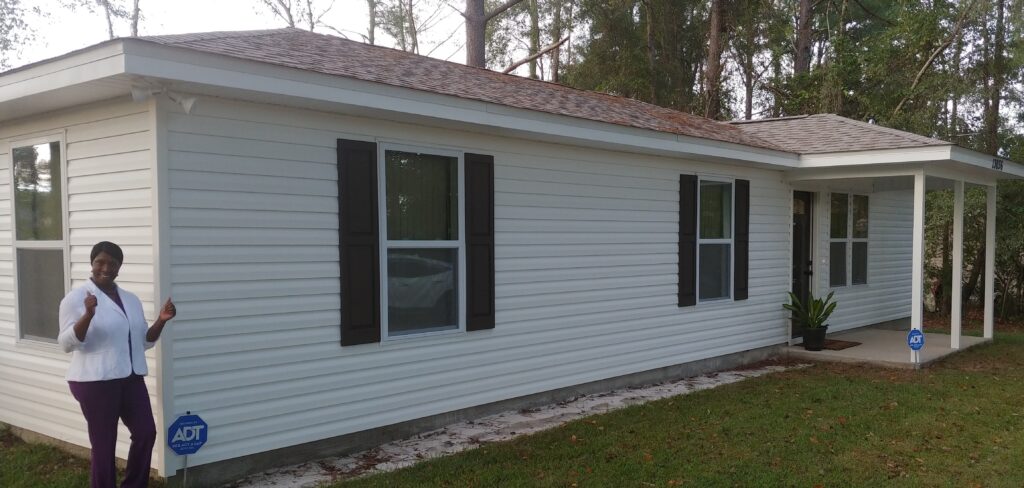
Plan to shift money draws affordable housing concerns

Photo by St. Clair Murraine
Jim Turner
News Service of Florida
Groups backing affordable workforce housing criticized a plan by legislative leaders to shift two-thirds of money designed for housing programs to address the effects of sea-level rise and upgrade sewage treatment.
Despite an outcry from environmentalists and Realtors, the House Agriculture & Natural Resources Appropriations Subcommittee last Thursday voted 10-5 along party lines to support the proposal (PCB ANR 21-01), which would redesignate portions of documentary-stamp taxes collected on real-estate transactions.
The money currently is directed toward affordable-housing programs in what is known as the Sadowski Trust Fund. That trust fund is an annual target of lawmakers who divert — or “sweep” — money to help pay for programs not related to affordable housing.
House Speaker Chris Sprowls, R-Palm Harbor, has made addressing sea-level rise a priority, and Senate President Wilton Simpson, R-Trilby, has made a priority of wastewater upgrades. The plan would earmark one-third of the documentary-stamp money for sea-level rise projects; one-third for sewage projects; and one-third for housing.
Rep. Lawrence McClure, R-Dover, called the proposal a “responsible approach” and subcommittee Chairwoman Josie Tomkow, R-Polk City, said the bill addresses three vital issues.
Tomkow also rejected the characterization that the deal is “sweeping” the trust fund, which over the past five years has averaged $160 million for affordable housing after money is directed to other uses.
“We are using these funds to address critical issues that go hand in hand with housing,” Tomkow said, adding that the plan would prevent money from being swept from the Sadowski Trust Fund in the future.
Affordable housing would get about $140 million during the upcoming 2021-2022 fiscal year under the current proposal, which must still go through the budget process.
Critics of the proposal said they support the need to address sea-level rise and wastewater issues, but the money shouldn’t come from funds intended to help nurses, firefighters and others in the workforce who are trying to buy homes.
Paul Owens, president of 1000 Friends of Florida, said “housing that’s affordable is an essential element of a sustainable community.”
Realtors warned that the money available through the documentary-stamp taxes is currently high because of COVID-19-related demand for housing. Costs to buy and rent homes also have gone up, limiting affordability for workers.
“Permanently reducing the amount of money available for affordable housing each year by more than 66 percent is way too drastic, especially given the volatile times we ourselves are in currently,” said Florida Realtors President-elect Christina Pappas, a Coral Gables Realtor. “Housing prices continue to climb. A federal foreclosure moratorium is set to expire and hundreds of thousands of Florida workers are dreaming of making the leap to homeownership. For so many nurses, law enforcement officers, firefighters, and other essential workers, the ability to purchase a home with down-payment assistance, closing-cost assistance, begins their journey of financial wellness for the rest of their lives.”
In voting against the proposal, Rep. Omari Hardy, D-West Palm Beach, said the plan “institutionalizes” the trust fund sweep.
“I recognize that this budget ensures that some of the water-quality needs and the resilience needs of the state are being addressed,” Hardy said. “My concern, however, is that they are being addressed on the backs of people who need affordable housing, which is something that we have underfunded for years in the state.”







